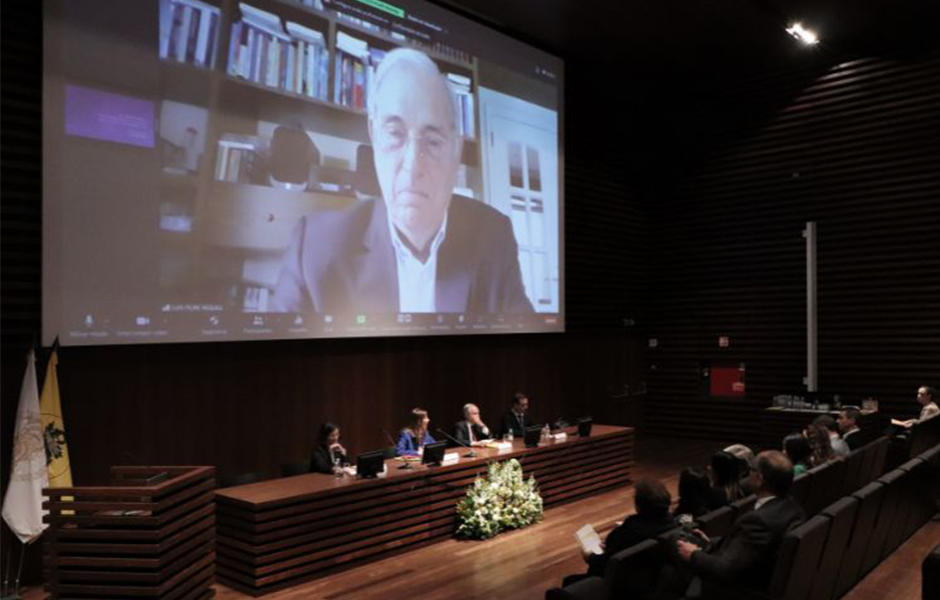Rui Nunes, a CINTESIS researcher and FMUP professor, was the first to speak in the Auditorium of the Faculty of Medicine of the University of Porto (FMUP), where he addressed the future of health in Portugal. “Health has to be thought of much further ahead, without forgetting its impact on a larger scale, namely in the European Union, especially after a pandemic like the one we experienced,” explained the CINTESIS researcher.
Altamiro da Costa Pereira, the coordinator of CINTESIS and director of the FMUP, highlighted the challenge of coordinating public and private health services, emphasizing the role of the Faculty of Medicine in training new doctors and, consequently, in national health. “We have good professionals, increasingly better professionals, but it is necessary to improve the [national health] system, change what needs to be changed and maintain or resume what should not have been changed,” he pointed out.
In the first debate, Rui Nunes pointed out that “in Portugal, there is not much tradition of opening up to civil society to make decisions”, and stressed that, in order to build better health, “it is necessary to listen to specialists and people linked to the sector”, a process that can guarantee “an organization of all its sectors, in order to guarantee health improvement”, explained Helena Alves, president of the Specialty College of Immunohemotherapy.
This was followed by a discussion on the sustainability of the health system, moderated by Guilhermina Rego, a researcher at CINTESIS and professor at FMUP. Isabel Vaz, CEO of Luz Saúde, highlighted that 50% of the Portuguese population has health insurance, something that, according to her, “has a huge impact on the economy and should allow citizens to choose who manages their health”.
The former Secretary of State, José Carlos Lopes Martins, mentioned that it is necessary to separate the purchasing entities, guarantee the autonomy of health infrastructures and reformulate the management of human resources, aiming to guarantee the development and reform of the health system. The guarantee of “better remuneration and better organization of the SNS” was also defended by Luís Filipe Pereira, former Minister of Health.
Rui Guimarães, chairman of the Board of Directors of the Gaia/Espinho Hospital Center, suggested that, at the national level, payment by results and a health promotion policy be adopted.
Work resumed in the afternoon with a debate on “Integration and reference in the health system”, moderated by João Fonseca, CINTESIS researcher and FMUP professor, with the participation of Martins Nunes, former secretary of State for Health, José Bento, chairman of the board of Cascais Hospital, and Ana Paula Martins, chairman of the board of Santa Maria Hospital. The evolution of the SNS, private supply and the management challenges of public hospitals were the themes debated in this session.
Regarding “Innovation and Equity”, António Vaz Carneiro, president of the Evidence-Based Health Institute, and Maria João Baptista, president of the Board of Directors of the São João Hospital Center, reflected on the impact of innovation in health.
The National Health Forum closed with an address by José Luís Carneiro, Minister of Internal Administration.

